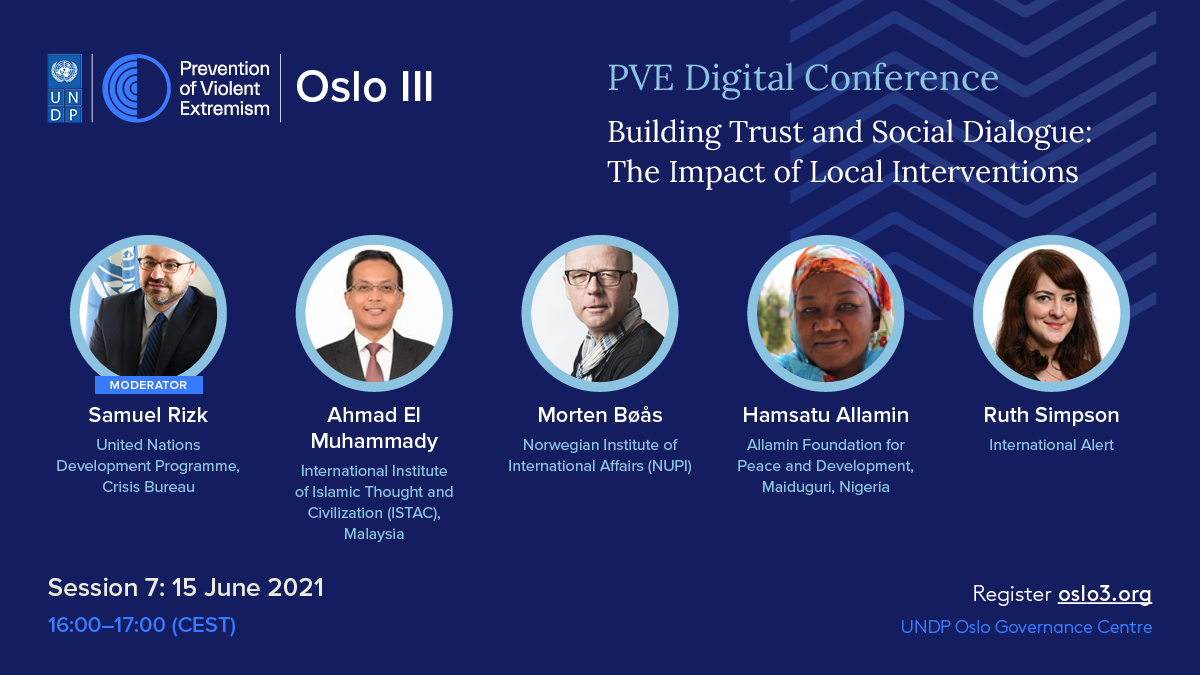Morten Bøås participated in this event in the capacity as Research Professor at NUPI and the Principal Investigator of PREVEX. This panel was titled Building Trust and Social Dialogue: the Impact of Local Intervention, and featured in addition to Bøås: Samuel Rizk (moderator – UNDP Crisis Bureau), Ahmad El Muhammady (International Institute of Islamic Thought and Civilisation), Hamsatu Allamin (Allamin Foundation for Peace and Dialogue, Maiduguri, Nigeria), and Ruth Simpson (International Alert).
Understanding local resilience to violent extremism
Expanding on arguments made in previous panels Bøås’ argued that with regard to the impact of Covid-19 on the recruitment to violent extremist groups we need to distinguish between the direct and indirect effects. While, for example, in the Sahel, the direct health and mortality effects of Covid-19 are not that visible, the indirect economic effects are evident and harsh, and both government and international interventions are seen as ineffective.
The result is increased popular discontent followed by attempts at misinformation. Local dialogue-based interventions can in some cases prevent that this leads to increased recruitment to violent extremism but can rarely on its own deal with the underlying causes that lead to the turn to violent extremism. Such locally grounded interventions need empowerment.
The question is how to strengthen local interventions in such a way that they remain locally owned and non-biased. One way this could be achieved is to add a stronger livelihood focus to existing PVE efforts and programming combined with recognizing and harvesting insights from the fact that even in an immensely enabling environment for agents of violent extremist ideologies as the Sahel, most people and most communities show remarkable resilience to such ideas and thoughts. This suggests that mainstream PVE approaches may have become too obsessed with the occurrence of violent extremism and therefore has focused too little on locally grounded resilience.




